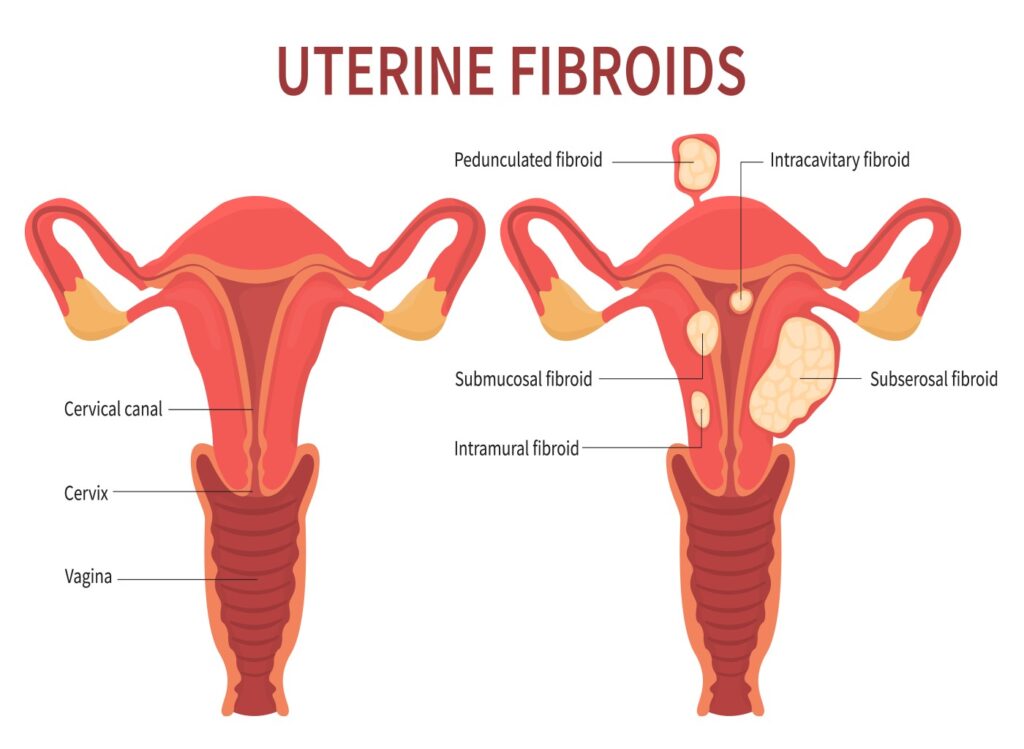Uterine Fibroids

Uterine fibroids, also known as leiomyomas, are noncancerous growths that develop in the uterus. They can vary in size, ranging from small, pea-sized nodules to large, bulky masses. While uterine fibroids are very common, with up to 70-80% of women experiencing them by the age of 50, they often do not cause symptoms and may go unnoticed. However, depending on their size and location, uterine fibroids can lead to various symptoms such as heavy menstrual bleeding, pelvic pain or pressure, frequent urination, constipation, and pain during intercourse.
At our clinic, we recognize the impact that uterine fibroids can have on a woman’s quality of life, and we offer specialized services to diagnose and manage this condition effectively. Our approach begins with a thorough evaluation of symptoms, medical history, and a physical examination. Diagnostic tests such as ultrasound, MRI, or CT scans may also be used to confirm the presence of uterine fibroids and assess their size, number, and location.
Once diagnosed, our team works closely with each patient to develop a personalized treatment plan tailored to her specific needs and goals. Treatment options for uterine fibroids may include:
Watchful waiting: If fibroids are small and not causing symptoms, periodic monitoring may be recommended to track any changes in size or symptoms over time.
Medications: Hormonal medications such as birth control pills, gonadotropin-releasing hormone (GnRH) agonists, or progestin-releasing intrauterine devices (IUDs) may be prescribed to help manage symptoms such as heavy bleeding or pelvic pain.
Minimally invasive procedures: Procedures such as uterine artery embolization (UAE), MRI-guided focused ultrasound surgery (MRgFUS), or myomectomy (surgical removal of fibroids) may be recommended to shrink or remove fibroids while preserving the uterus.
Surgery: In cases where fibroids are large, causing severe symptoms, or affecting fertility, a hysterectomy (surgical removal of the uterus) may be recommended.
In addition to medical treatments, we provide comprehensive support services to help women cope with the physical and emotional challenges of living with uterine fibroids. This may include counseling, lifestyle modifications, nutritional support, and access to alternative therapies such as acupuncture or yoga.
Our goal is to provide compassionate and comprehensive care for women affected by uterine fibroids, helping them manage their symptoms and improve their quality of life. With our specialized services, women can receive the support and treatment they need to navigate this condition with confidence and resilience.